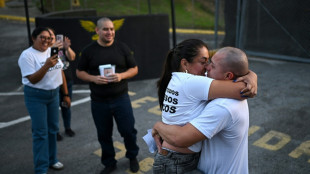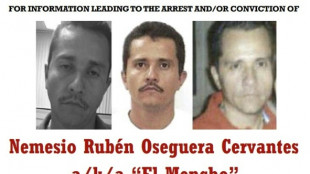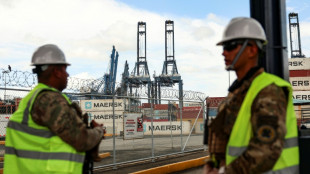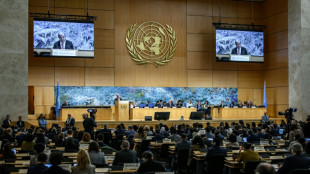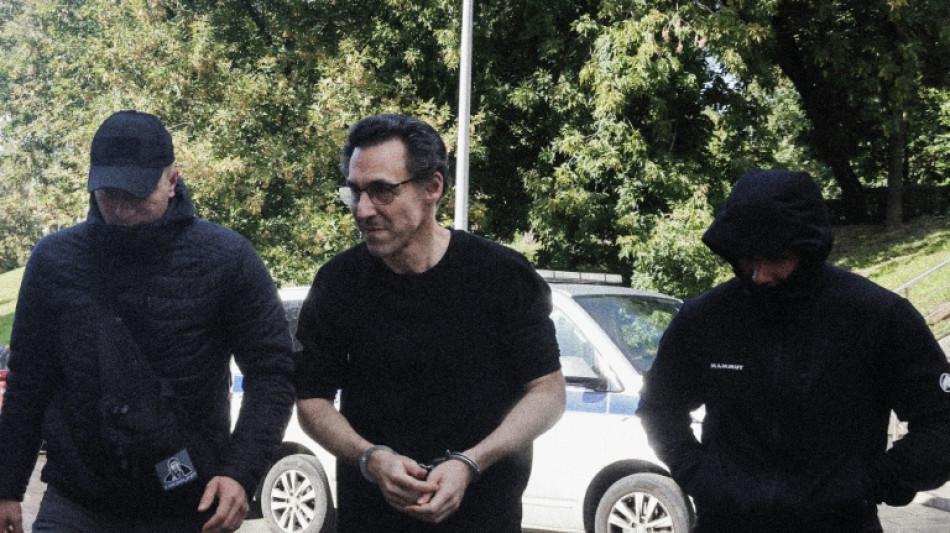

Russia holds secretive espionage hearing against French researcher
A Russian court on Monday held a secretive espionage hearing against a French researcher who is already serving a three-year prison sentence, the latest in a string of Westerners since the Ukraine offensive.
Laurent Vinatier, a researcher with a Swiss conflict mediation NGO, was arrested in June 2024 and sentenced for breaching Russia's foreign agents law, in a case decried by Paris as "arbitrary".
He has now been implicated in what appear to be fresh allegations of espionage, which carries a prison sentence of up to 20 years.
However, Russia has provided no details of the case and it is unclear whether Vinatier has been formally charged or what exactly he is being accused of.
AFP reporters saw Vinatier, wearing all black, being brought by plain clothes security agents into Moscow's Lefortovo court for a 20-minute hearing.
The proceedings were closed to the media and public, with a spokesperson for the court earlier telling AFP the hearing was related to an espionage case.
There has been no information provided by prosecutors, the court or Vinatier's lawyers about the new proceedings.
Unusually, Russian state media -- which typically closely follows high-profile cases involving foreigners -- did not report on Monday's hearing.
"We have absolutely no new official information," Vinatier's mother, Brigitte Vinatier, told AFP via telephone before the hearing.
- 'Propaganda' -
Vinatier is one of several Westerners to have been arrested after Russia's all-out military offensive on Ukraine.
France has called for his release and slammed the case as "arbitrary".
French President Emmanuel Macron has urged Russia to free Vinatier, saying he is being unfairly detained and that the "propaganda" against him "does not match reality".
Paris is one of Ukraine's strongest supporters, and Russia has singled out France as a particularly hostile state during the conflict.
Vinatier worked as an adviser with the Geneva-based Centre for Humanitarian Dialogue, and is a veteran researcher on Russia and other post-Soviet countries.
Leaving the court on Monday, his lawyer Oleg Bessonov told AFP that the short hearing was a "routine formality", without elaborating.
"I'm tired," Vinatier said as he left.
Asked whether he felt like a "hostage" of the authorities, he replied in French: "Yes."
In the original case, prosecutors accused him of gathering military information without registering with the authorities -- something Vinatier apologised for and said he was not aware he was required to do.
Speaking Russian during that trial, he said that in his work he always tried to "present Russia's interests in international relations".
Moscow has used the foreign agent law -- which has connotations of Cold War-era espionage -- to crack down on domestic critics of the Kremlin and its Ukraine offensive.
Charges have often been levelled as a precursor to more serious allegations -- as seems to be the case with Vinatier.
Vinatier's mother said he had been transferred from his penal colony outside Moscow to the capital's Lefortovo prison for questioning and the hearing.
The facility is notorious for housing alleged spies and traitors and dealing with the country's most high-profile cases.
"We were extremely concerned when we realised this prison is reserved for Russian political prisoners," Brigitte Vinatier said.
"But I can't say it is a shock because we do not expect anything good, anything positive.
"Knowing the Russian government, we were not surprised that they were pursuing him again," she added.
In recent years, Russia has arrested a string of Western citizens -- including US journalist Evan Gershkovich and American basketball player Brittney Griner. Both were then released in prisoner exchanges.
Washington and Paris have accused Moscow of hostage-taking -- arresting their citizens on baseless charges to exchange them for Russians detained in the West.
R.Lopera--BT

